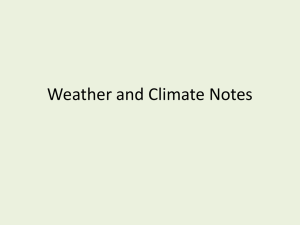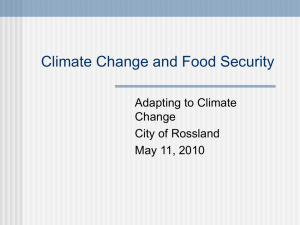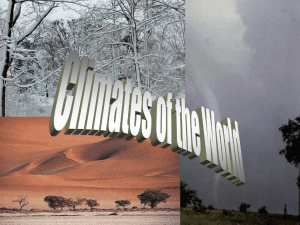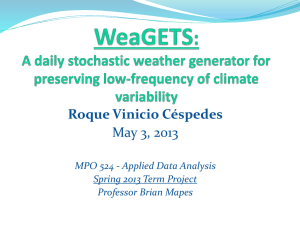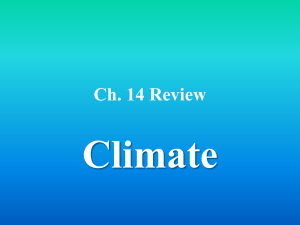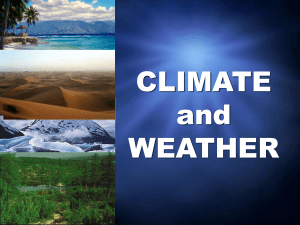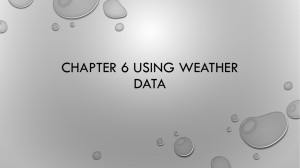relief precipitation
advertisement
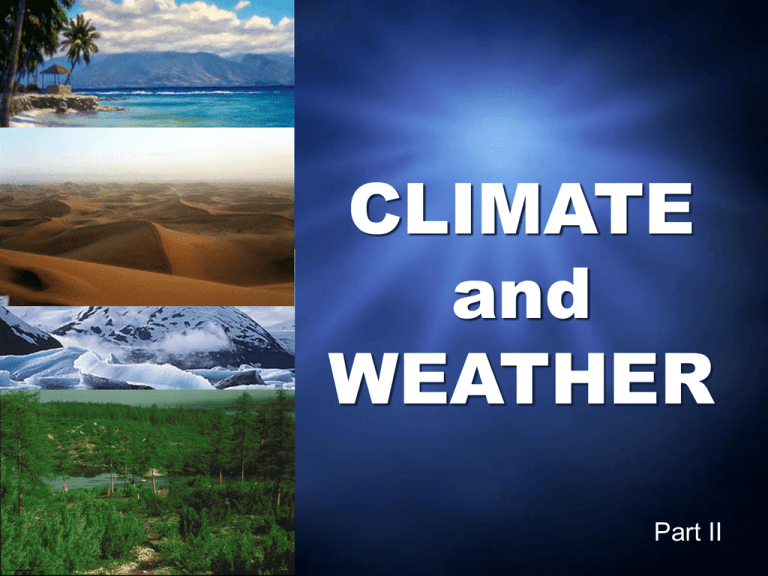
CLIMATE and WEATHER Part II PRECIPITATION QuickTime™ and a TIFF (Uncompressed) decompressor are needed to see this picture. QuickTime™ and a TIFF (Uncompressed) decompressor are needed to see this picture. Precipitation Three types of precipitation: • RELIEF PRECIPITATION • CONVECTIONAL PRECIPITATION • CYCLONIC PRECIPITATION Why does precipitation occur? • Air cools as it rises • As air cools, water vapour condenses more than it evaporates Why does air rise? 1. It rises to cross an area of high elevation. This causes RELIEF PRECIPITATION 2. It rises because it has absorbed heat from the earth’s surface. This causes CONVECTIONAL PRECIPITATION 3. It rises because there is a cooler, denser air mass flowing beneath it that forces it up. This causes CYCLONIC PRECIPITATION. RELIEF PRECIPITATION • Mountain barriers create relief precipitation • As the moist air rises up the slope of a mountain, it expands and cools • As the air cools, the rate of evaporation decreases while the rate of condensation increases • The result is water droplets in the air • The heavier and more condense the droplets become, rain falls • In colder temperatures, water vapour condenses to snow Quic kT ime™ and a T IFF (Uncompress ed) decompress or are needed to s ee this pi cture. RELIEF PRECIPITATION QuickTime™ and a TIFF (Uncompressed) decompressor are needed to see this picture. CONVECTIONAL PRECIPITATION • Very common in summer • Common in location such as the Prairie provinces, Ontario and Québec • The land is subject to intense heating • As the ground heats up, the air above it rises • As it rises it expands and cools • The water vapour within it condenses, forming puffy white clouds • As more water vapour condenses into these clouds, the clouds develop vertically and water droplets get larger and larger CONVECTIONAL PRECIPITATION • At high altitudes, the water droplets may even freeze, forming ice pellets (hailstones) • The weight of the water droplets or hailstones cause them to fall to the ground, often violent downpours CONVECTIONAL PRECIPITATION QuickTime™ and a TIFF (Uncompressed) decompressor are needed to see this picture. CYCLONIC PRECIPITATION • A cyclonic storm (also known as a front) is a large, low-pressure system that forms when a warm air mass and a cold air mass collide • This often occurs under the polar-front jet stream which separates cold dry arctic air from warm, moist tropical air • The rotation of the earth causes the air to circulate in a counterclockwise direction CYCLONIC PRECIPITATION QuickTime™ and a TIFF (Uncompressed) decompressor are needed to see this picture. Homework • Textbook - page 139 #1-10 a), 11
